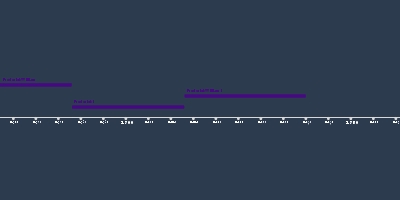The Hundred Years' War (jan 1, 1337 – jan 1, 1453)
Description:
Due to increasing military disputes, France and England engaged in the longest war in European history, which lasted 116 years.One cause was land disagreements. When Eleanor of Aquitaine married King Henry II of England in 1152 and in 1259 when Henry III of England signed the Treaty of Paris with Louis IX of France, the claim to the duchy of Aquitaine was split.
A more immediate cause was a disagreement over who would inherit the French throne after Charles IV of France. His sister Isabella overthrew her husband Edward II of England with her lover Roger Mortimer. Edward III was put on the throne but the French argued a woman or her son could not succeed to the French monarchy. The nobles passed the throne to Philip IV of Valois, and the conflict eventually led to war.
The English gained early victories, partly due to the use of the longbow. Henry V of England invaded France in 1415 and married the daughter of the French king. It seemed as if he's control both France and England, but France was able to fight back with the leadership of Joan of Arc.
Joan of Arc was able to inspire and lead French attacks and forced the English to retreat from Orleans . She became co-commander of the army and led several more victories. Charles was crowned in 1429. She was eventually captured by Burgundians and killed.
Burgundians switched sides and took back Normandy and Aquitaine. Loss of money, parliamentary and public opposition and French victories caused England's ultimate loss.
The war caused heavy loss of life, land, and money in both nations. It also stimulated technological experimentation and the development of the England Parliament. Representative assemblies flourished across Europe.
Added to timeline:
Date:
jan 1, 1337
jan 1, 1453
~ 116 years
